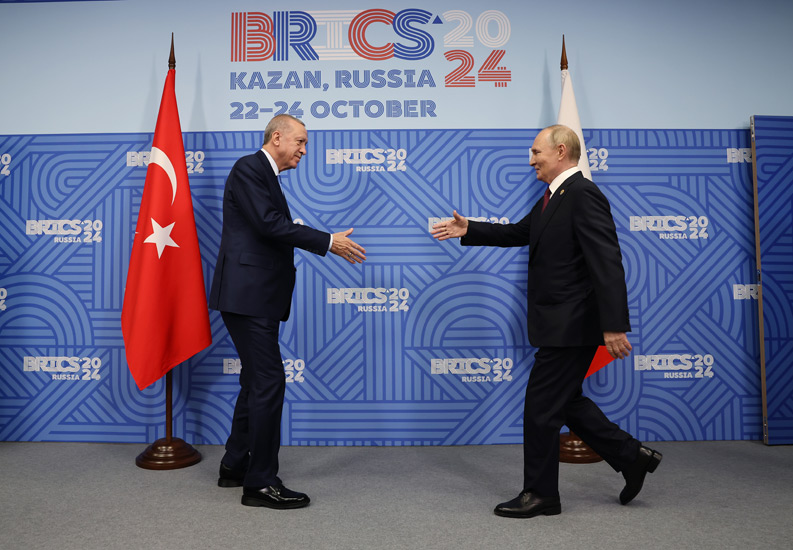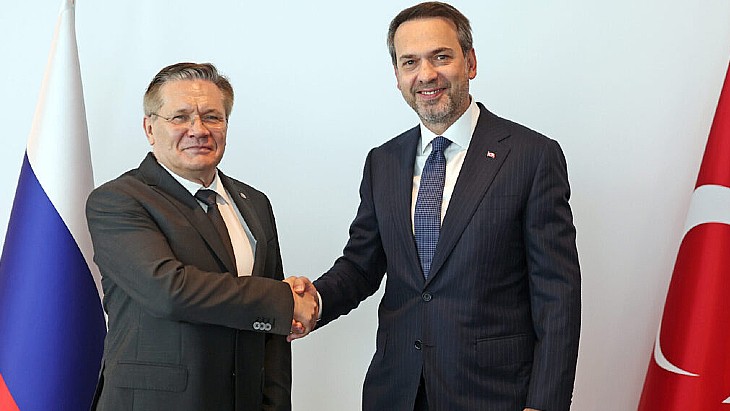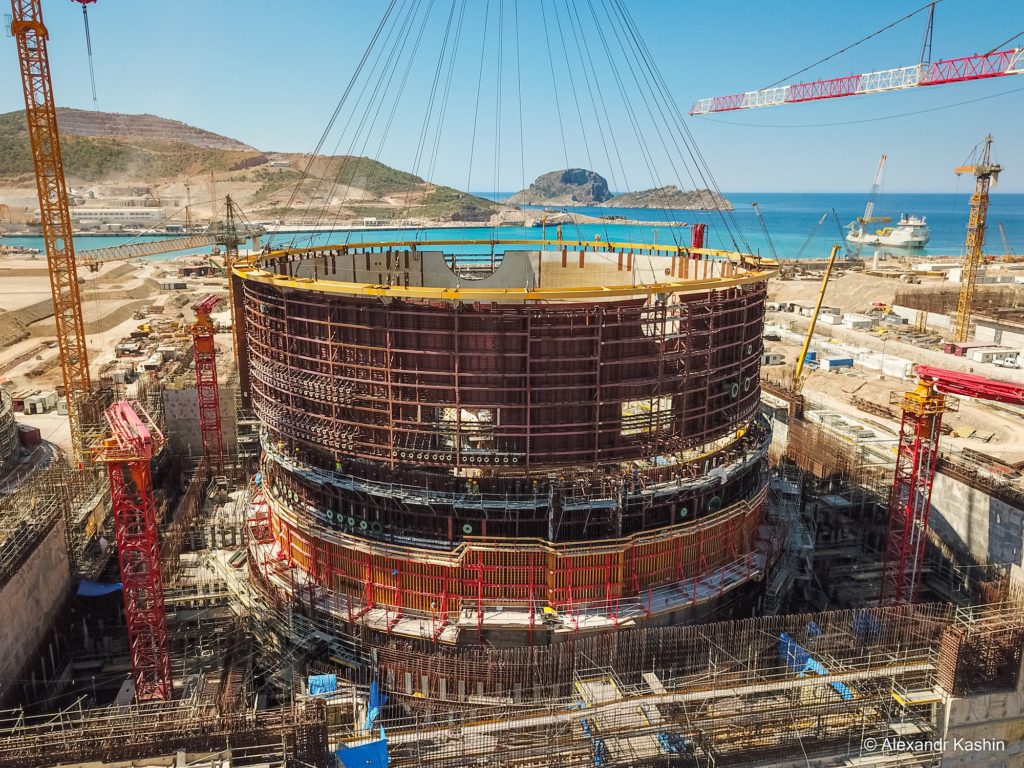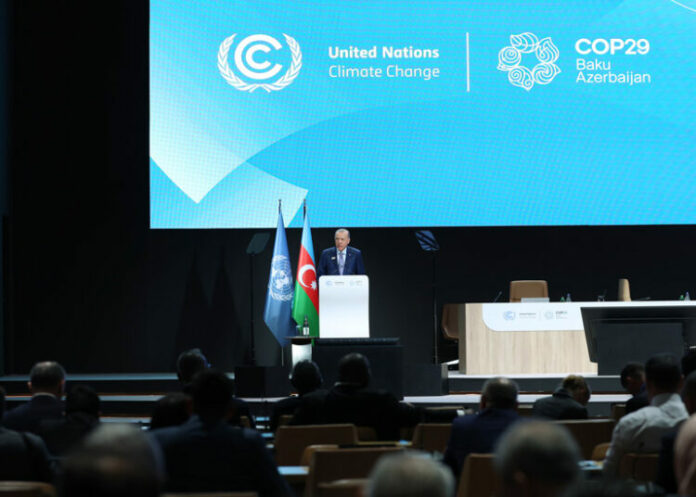Levent Kenez/Stockholm
During his address at the 2024 UN Climate Change Conference (UNFCCC COP 29) in Baku, Turkey’s President Recep Tayyip Erdogan outlined Turkey’s path to achieve carbon neutrality by 2053. Acknowledging the critical role of nuclear energy in achieving these targets, Erdogan stated that Turkey aims to reach a capacity of 20,000 megawatts of nuclear power by 2050.
To meet these goals, Turkey is expanding its nuclear infrastructure beyond the Akkuyu Nuclear Power Plant, currently under construction in Mersin, which is set to commence energy production by July 2025. Erdogan previously revealed that Turkey plans to build two additional nuclear facilities: a second plant in Sinop, on Turkey’s northern Black Sea coast, and a third plant in the Thrace region.

For the Sinop project, Turkey has opted to maintain its partnership with Russia, similar to the collaboration established for the Akkuyu facility. In an October 27 interview with the Russian television network RT, Alexey Likhachev, the head of Russia’s Rosatom State Corporation, which specializes in nuclear energy, stated that Erdogan has asked Rosatom to oversee the construction of the Sinop facility. Likhachev noted that both Turkish and Russian government officials are currently engaged in discussions on expanding Rosatom’s role to include the Sinop site, and that Erdogan has already discussed the matter with Russian President Vladimir Putin, with the two leaders reportedly reaching an agreement.
Likhachev also disclosed in a February 28 address to the State Duma, Russia’s lower house of parliament, that Turkey’s government has made a “political decision” to work with Russia on the Sinop project, following Akkuyu’s model.
On January 31, 2023, the Korea Electric Power Corporation (KEPCO) submitted a proposal to the Turkish Ministry of Energy for a series of nuclear facilities, including Sinop. However, discussions between Turkey and Russia regarding a second nuclear power plant in Sinop have been ongoing for several years and preparations for construction have already begun at the site.
According to reports in Turkish media, Turkish Energy Minister Alparslan Bayraktar stated on July 16, 2024, that Russia holds a favorable position to secure the contract for the planned nuclear facility in Sinop. Bayraktar explained that Rosatom aims to complete the Akkuyu nuclear plant and subsequently shift its resources and expertise to Sinop.
“The licensing process for the Sinop plant is expected to conclude within the next two to three years,” Bayraktar noted. “The team currently working on Akkuyu will then move north to Sinop. This readiness and strategic continuity give them a natural advantage in this project, and for me and many others, they are indeed ahead in the race.”

Turkey’s planned second nuclear facility, to be located in Sinop, on the Black Sea coast, is expected to mirror the specifications of the Akkuyu plant, with four VVER-1200 reactors, each generating 1.2 GW. However, critics argue that Turkey has sacrificed aspects of its sovereignty in its nuclear collaboration with Russia.
Deniz Yavuzyılmaz, a Republican People’s Party (CHP) MP and shadow energy minister, recently highlighted concerns over Turkey’s agreement with Russia on the Akkuyu plant in parliament. He emphasized that Russia has secured guaranteed commissions on the energy produced. According to Yavuzyılmaz, the $22 billion facility remains entirely under Russian ownership, while Turkey is committed to a purchase guarantee estimated to total $38 billion over 15 years. At current rates, Turkey’s 60-year financial commitment could amount to 5.68 trillion Turkish lira ($284 billion), raising concerns over long-term dependence.
Yavuzyılmaz criticized the deal further, warning that Russia stands to benefit while Turkey is left importing from a foreign-owned facility within its borders. He argued that the agreement essentially creates what could be seen as Russia’s first military base in Turkey, as the 11 square kilometers allocated for the project have been handed over for a century.
A report by Nordic Monitor raised additional concerns, suggesting that Russia may intend to install radar and missile systems in a town near Akkuyu, only 280 miles from a NATO radar installation, sparking strong objections from opposition parties. Despite warnings that such installations could pose national security risks, a parliamentary motion against the plan was defeated in October 2022 by votes from Erdogan’s ruling Justice and Development Party (AKP) and its ally, the Nationalist Movement Party (MHP).

Turkey’s reliance on Russian energy remains high. In 2022, Russia supplied nearly half of Turkey’s coal imports for electricity, up from 26 percent in 2021, with natural gas and oil imports from Russia fluctuating but holding steady at around 40 to 45 percent, followed by supplies from Iran and Azerbaijan.
Meanwhile, local opposition to the Sinop plant has intensified. In July 2023, the Nuclear Counteraction Platform (NKP) sought to annul the positive Environmental Impact Assessment (EIA) report for the Sinop plant, identifying 300 points of concern in a court-commissioned expert report. Although Turkey’s Council of State overturned a ruling upholding the EIA, government support for the Sinop project has allowed it to proceed.




